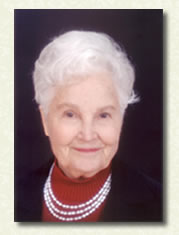
About Wantha
Wantha Davis was one of America's leading jockeys. Her success had repercussions throughout the racing world in the 1930s, '40s and '50s.
Newspaper writers of the era marveled at her riding skill and poise. The petite brunette in racing silks was a famous figure on racetracks from Tijuana to Vancouver and a pioneer in the struggle for equality of women in the male-dominated world of racing.
At the top of her field, she won more than half of the thousands of races in which she rode, including match races. Talented and determined, she embodied the true spirit of the American West.
In 1949 thousands of spectators crossed the border from San Diego to Agua Caliente, Mexico, to watch her outrace the great Hall of Famer Johnny Longden by a length and three-quarters in a six furlong match race. The three-time national champion was so mad he yanked off his tack and refused to weigh out. Hall of Famer Glen Lasswell was also defeated by her at Agua Caliente, as was Hall of Fame rider Basil James in Nebraska.
Riding for top trainers, owners and breeders such as Marion van Berg, Walter Merrick, and Rex Ellsworth, Wantha competed on equal footing with the top male jockeys of the day. She may be one of the only female athletes to compete against and defeat the top men in her sport.
“I was never scared,” Wantha recalled. “When you’re on a horse, you don’t have time to think about your nerves.” She preferred to coax her horses by hand rather than using a whip, and she hollered just the right words to make them move into first place. “The yells were different, because each horse was different.”
Wantha was always in demand as a jockey and got to ride some of the best horses. She traveled to Louisville, Kentucky, heart of thoroughbred country, and worked horses at Churchill Downs. On account of her gender, she was never allowed to race there. Her applications for a license were repeatedly turned down in state after state. It was not until twelve years after Wantha retired that a woman jockey successfully sued for a license under the 1964 Civil Rights Act.
The facilities at race tracks didn’t have a ladies’ dressing room. That didn’t stop Wantha. She just made her horse trailer into a portable dressing room and was always sitting pretty at the starting gate.
Wantha’s turf was the western circuit of dusty county fairs and half-mile tracks that has all but disappeared from the landscape of horse racing. She also rode at some state-sanctioned pari-mutuel tracks—a few rungs up the ladder. But without a license, Wantha was largely a product of the unrecognized bush tracks that were tough dirty places even for a man.
“I rode in places so wild and woolly, there were steers and bucking horses in the infields," she says. "Anything was liable to run across the racetrack.”
She was born Wantha Lorena Bangs, about a half mile from a racetrack in Kansas. “It was natural, in this country, for me to learn to ride when I was a small girl.” She had her own Shetland pony, Merrylegs, a gift from her grandfather when she was four. As soon as she could reach the stirrups, a neighbor let her ride a black mare, Baby Jo, and she entered her first race at age fifteen.
After finishing high school in 1934 Wantha rode a freight train bound for Texas with 50 cents in the pockets of her jeans. Within a day, she found her way to the track where she got work as an "exercise boy.” She’d gallop horses in the early morning hours before the races.
Wantha married Lendol Davis, a horse breeder and race track regular from Oklahoma. With young son Tad, their only child, they would tour the racing circuit with their old car packed with possessions and pets, pulling a horse trailer. They’d sleep by the side of the road when there was no money for a motel. When her son reached school age, she stopped racing in order to provide a stable home environment.
Wantha kept up with the racing news all her life. She moved to Austin, Texas, to be closer to her son after her husband passed on, and she continued to serve as an inspiration to her three grandchildren. "Hard work, with respect, discipline, and cleanliness for body, mind, and soul is my recipe for being a winner," she says.
Though well-spoken, she was modest about her victories over male jockeys. In 2004 Wantha was inducted into the Cowgirl Hall of Fame, and she was recently nominated for a place in both the Thoroughbred Racing Hall of Fame and the Quarter Horse Racing Hall of Fame.


